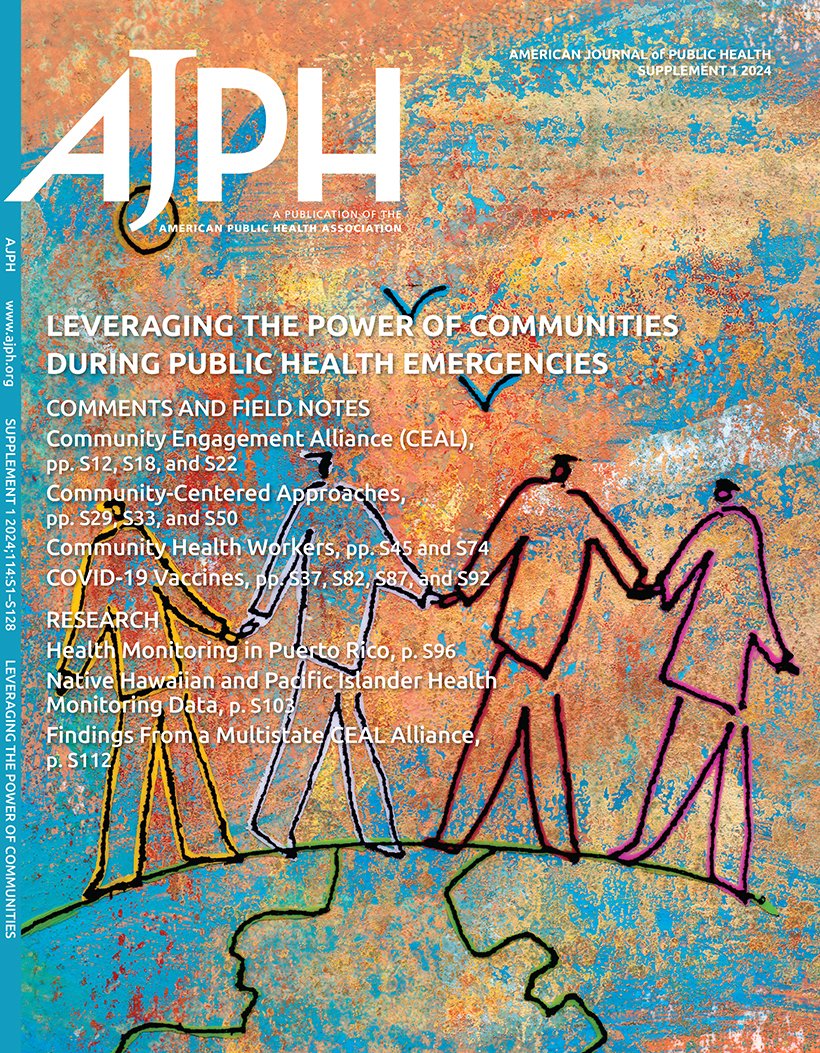Enumerating the State and Local Public Health Workforce During the COVID-19 Response.
IF 9.6
1区 医学
Q1 PUBLIC, ENVIRONMENTAL & OCCUPATIONAL HEALTH
引用次数: 0
Abstract
Objectives. To understand the landscape of the nonfederal governmental public health workforce and to identify replicable methods for future enumerations. Methods. This enumeration of the state and local public health workforce was conducted from 2023 to 2024 and triangulated the National Association of County and City Health Officials (NACCHO) Profile 2022 and the Association of State and Territorial Health Officials (ASTHO) Profile 2022. We utilized Public Health Workforce Interests and Needs Survey (PH WINS) data from 2021 to assess demographic distributions across Department of Health and Human Services (HHS) regions in the United States. Results. A total of 239 000 staff were employed in state and local health departments in 2022, a 2% increase since 2012. Sixteen states-including 6 in the Southeast-lost staff relative to population growth. Conclusions. An uneven landscape of public health workforce density reflects chronic underinvestment in public health. The process of enumeration itself was also fraught with pitfalls and data limitations. Public Health Implications. We recommend building on federal investments to develop dedicated funding streams for state and local public health. We also recommend amending federal efforts around enumeration to include governmental public health at all levels. (Am J Public Health. 2025;115(5):716-725. https://doi.org/10.2105/AJPH.2024.307964).列举了应对COVID-19期间州和地方公共卫生人力。
目标。了解非联邦政府公共卫生工作人员的情况,并为今后的枚举确定可复制的方法。方法。这项对州和地方公共卫生工作人员的调查是在2023年至2024年期间进行的,并对全国县和市卫生官员协会(NACCHO) 2022年概况和州和地区卫生官员协会(ASTHO) 2022年概况进行了三角测量。我们利用2021年的公共卫生劳动力兴趣和需求调查(PH WINS)数据来评估美国卫生与公众服务部(HHS)地区的人口分布。结果。2022年,州和地方卫生部门总共雇用了239 000名工作人员,比2012年增加了2%。16个州(包括东南部的6个州)的工作人员因人口增长而减少。结论。公共卫生人力密度的不平衡反映了对公共卫生的长期投资不足。枚举过程本身也充满了陷阱和数据限制。公共卫生影响。我们建议在联邦投资的基础上,为州和地方公共卫生发展专门的资金流。我们还建议修改联邦政府在枚举方面的努力,以包括各级政府的公共卫生。[J] .公共卫生杂志,2015;115(5):716-725。https://doi.org/10.2105/AJPH.2024.307964)。
本文章由计算机程序翻译,如有差异,请以英文原文为准。
求助全文
约1分钟内获得全文
求助全文
来源期刊

American journal of public health
医学-公共卫生、环境卫生与职业卫生
CiteScore
9.50
自引率
3.90%
发文量
1109
审稿时长
2-4 weeks
期刊介绍:
The American Journal of Public Health (AJPH) is dedicated to publishing original work in research, research methods, and program evaluation within the field of public health. The journal's mission is to advance public health research, policy, practice, and education.
 求助内容:
求助内容: 应助结果提醒方式:
应助结果提醒方式:


